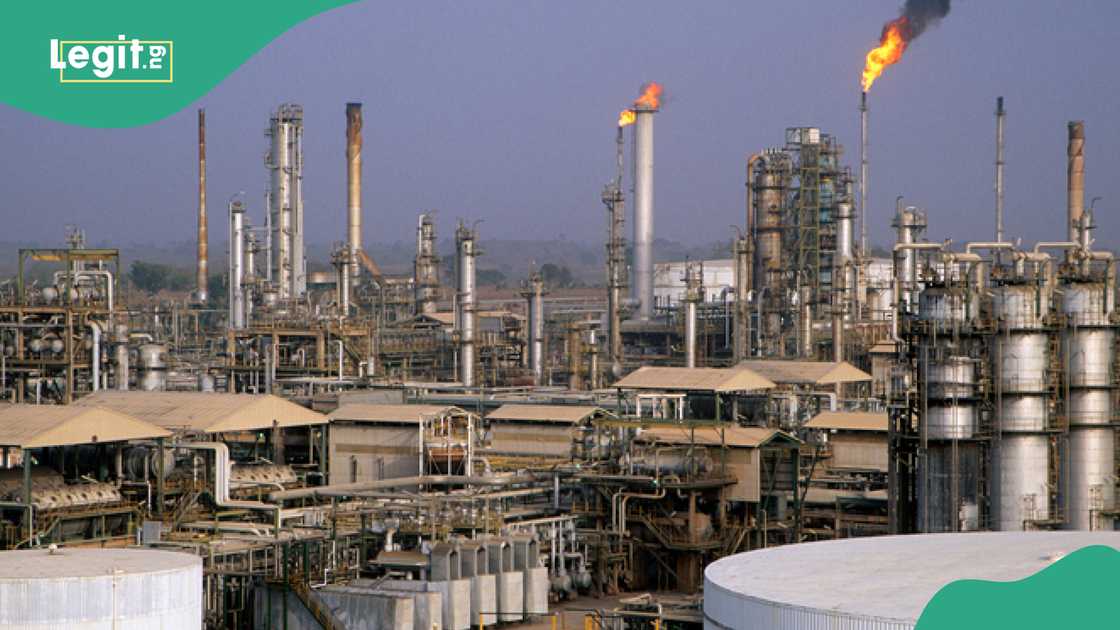- The process of amending the Petroleum Industry Act has begun in the House of Representatives
- The bill is sponsored by the member representing Ideato North/Ideato South Federal Constituency, Imo Stat
- License holders with limited capacity for refining can band together to operate thanks to the revision in sub-section 2(a)
Legit.ng journalist Zainab Iwayemi has over 3-year-experience covering the Economy, Technology, and Capital Market.
The House of Representatives has commenced moves to amend the Petroleum Industry Act to make provision for non-producing oil wells to lose their operational licences.

Source: Getty Images
On September 26, 2024, the House passed for first reading “A bill for an Act to amend the Petroleum Industry Act, 2021 to provide for licensing requirements for the operation of oil wells, petroleum prospecting licenses and, for revocation of licenses from non-performing oil fields and for related matters.”
It is anticipated that in the coming weeks, the Green Chambers floor will reconvene to discuss the measure presented by Ikenga Ugochinyere, the member representing Ideato North/Ideato South Federal Constituency, Imo State.
According to a copy of the draft that The PUNCH reported, the proposed law would add additional sub-sections 2 and 3 to Section 81 in order to alter it.
On licensing requirements for petroleum mining lease, sub-section 2 specifies that a petroleum mining lease shall be issued under sub-section 1 of this section where the holder of a petroleum prospecting licence exhibits a minimum crude oil refining capability of 50,000 barrels per day.
Subsection 2(a) has been amended to permit licensees with limited refining capacity to collaborate in order to operate.
“Any petroleum prospecting licensee without the minimum crude oil refining capacity specified in this section may form a consortium consisting of not more than five licensees and such a consortium shall be granted a license for the field.”The Nigerian Upstream Petroleum Regulatory Commission is authorized by the bill's subsection 2(b) to establish the operational framework for these corporate consortiums.
Licences revocation
The bill in sub-section 3 provides that “Where a licensee fails to produce the required capacity of crude oil for a continuous period of two years, the commission shall revoke the licence of that licensee. This provision shall also apply to the consortium under sub-section 2.”
The bill further clarified what constitutes a non-producing oil field.
“In this section (3a), an oil field shall be considered non-producing if there has been no crude oil production, reinjection for storage, or any other approved operational activity from that oil field over a continuous two-year period.3(b) provides that “The commission shall prescribe regulations and guidelines for monitoring oil well performance, criteria for determining non-performance, notification procedures prior to revocation, and the revocation process under this section.”Since its enactment in 2021, there have been calls from stakeholders including the Host Communities of Nigeria Producing Oil and Gas, Independent Petroleum Producers, and Oil Producers Trade Section, among others for the amendment of the PIA.
Dangote petrol prices emerge
Legit.ng reported that the Nigerian National Petroleum Corporation Limited (NNPCL) has started lifting Premium Motor Spirit (PMS), also known as petrol, from Dangote Refinery today, Sunday, 15 September 2024.
On Saturday, the national oil company announced that at least 300 trucks are stationed at the Lekki, Lagos refinery.
The news has been greeted with excitement by Nigerians who hope that development will mean cheaper petrol prices at filling stations.
PAY ATTENTION: Сheck out news that is picked exactly for YOU ➡️ find the “Recommended for you” block on the home page and enjoy!
Source: Legit.ng
















 English (US) ·
English (US) ·